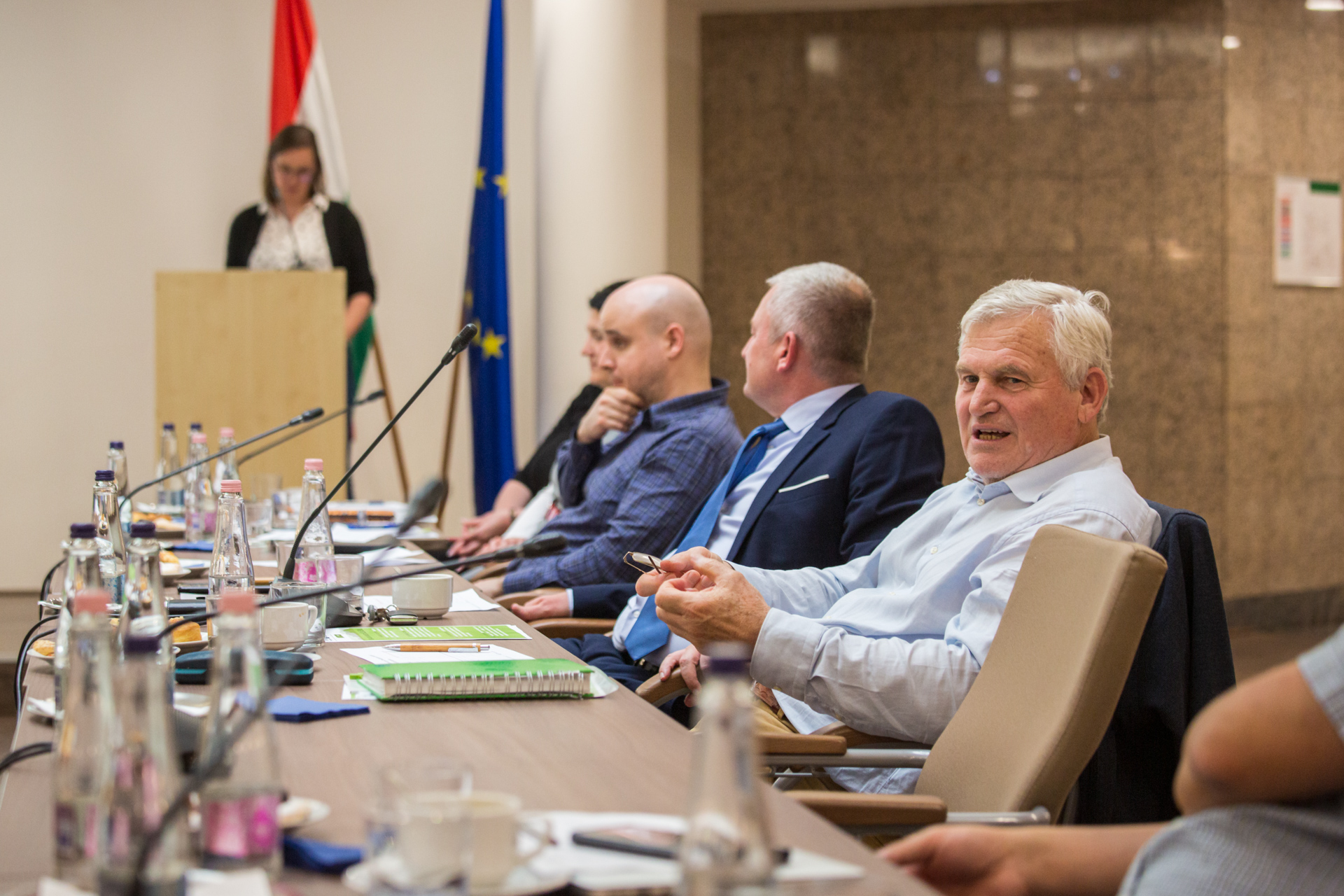On May 2, the Hungarian Ministry of Agriculture and the HUN-REN Research Centre for Natural Sciences hosted a roundtable discussion on enhancing intersectoral cooperation in the bioeconomy. The event was part of the BIOECO-UP project, funded by the INTERREG Central Europe programme, which aims to support the BIOEAST Initiative’s goals, raise awareness of the bioeconomy, and explore connections between the Common Agricultural Policy (CAP) and the EU Bioeconomy Strategy.
The roundtable followed a series of interviews on intersectoral cooperation within the bioeconomy domain and involved 14 participants from 10 organizations, including representatives from the ministry, companies, support organizations, universities, and research institutes. The discussion began with an introduction to the project and, followed by a problem-framing workshop where key bioeconomy stakeholders discussed technological, socio-economic, governance, knowledge, and business-related challenges to intersectoral cooperation in Hungary. A brainstorming session then generated potential solutions to the identified challenges.
Several key themes emerged during the conversation. Participants highlighted the lack of long-term guidance from national decision-makers, as well as the absence of clear rules and regulations, which created uncertainty among bioeconomy stakeholders. Additionally, insufficient information about other actors, available biomass, bio-based solutions, and products hinders cooperation. Disagreement among stakeholders regarding the definition of the bioeconomy and related terms was also identified as a significant barrier to communication.
Proposed solutions included establishing a common understanding across sectors by creating a concise definition of the bioeconomy, training experts with comprehensive knowledge of the domain, ensuring the availability and accessibility of reliable data, simplifying regulatory frameworks, and setting a deadline for the adoption of a dedicated national bioeconomy strategy. These solutions collectively provide a framework for overcoming barriers to collaboration and advancing toward a more integrated and sustainable bioeconomy.
